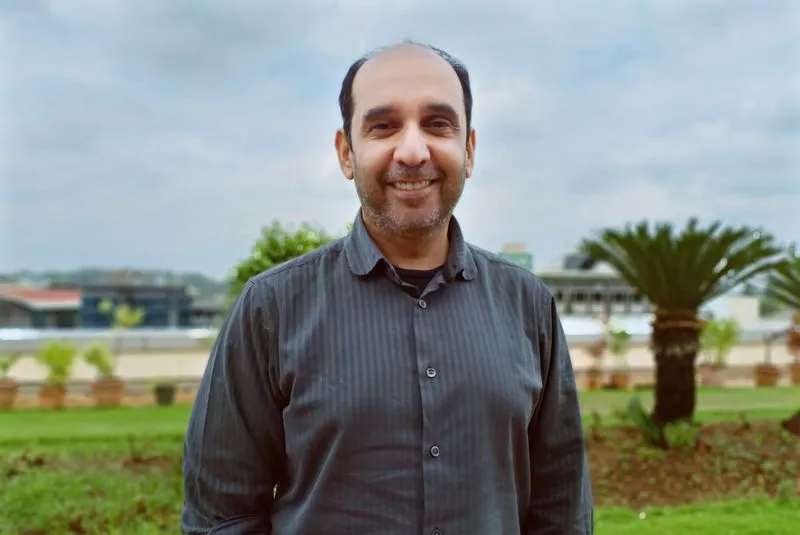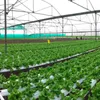How agritech startup Harabaag organises the post-harvest supply chain using micro-level crop data
Mumbai-based Harabaag claims to have captured crop data from nearly 120,000 farmers in two years. The bootstrapped startup is doubling its revenue month-on-month, and looks to expand into the cow belt.
Mohnish Sharma has dabbled in Indian agribusinesses for almost six years. First, as the CEO of DestaGlobal, a B2B e-commerce platform for agri manufacturers.
And now, as the Founder-CEO of Harabaag, a Mumbai-based agritech startup launched in April 2017.
Harabaag (meaning ‘green garden’ in Hindi) is a B2B network of farmers, farm input manufacturers and dealers, traders and exporters, and last-mile retail buyers. It runs on micro-level agri data collection from farmers.

Mohnish Sharma, Founder and CEO, Harabaag
Capturing crop data of 120,000 farmers
The startup claims to have captured data of over 1.2 lakh farmers. These farmers are spread across 36 districts of Maharashtra, the only state where Harabaag currently operates. The founder says that an expansion into the cow belt is on the cards.
Mohnish tells YourStory, “We’re expecting a multi-fold jump in the farmer base over the next two to three years as we move into the northern states.”
Harabaag captures farmers’ basic crop data - types of crops grown, fertilisers and inputs in each crop, quantities grown and sent to mandis, etc. It also tracks seasonal harvest trends, sends out timely alerts to farmers, and provides them visibility on seller transactions.
Without sharing revenue figures, the bootstrapped startup claims it is doubling month-on-month. “But, sales will taper off once the harvest season ends,” the founder shares.
“We’re also planning to raise funds by November,” he adds.
Organising the post-harvest supply chain
Mohnish reveals that the germination of Harabaag began during his stint at DestaGlobal.
He shares, “We realised farmers always went for the cheapest stuff available, which didn’t give them quality output. Since they were never sure of what prices they would get from customers at the mandi, they kept their own investments low. We wanted to change that so farmers could sell their harvest at higher prices and increase profits.”
“That is how Harabaag happened,” he adds. In November 2017, Mohnish was joined by his former colleague Vidya Jayant as co-founder and COO.
Their goal was to organise the post-harvest supply chain, help farmers with better access to mandis, traders, input dealers, and alternate vendors. This could consequently bring down losses in the post-harvest fruits-and-vegetables market that currently amount to over Rs 2 lakh crore every year, according to ASSOCHAM.

Harabaag captures basic crop data from farmers on a mobile app used by local farm collectors.
Harabaag’s dealer network is 22,000-strong. These dealers assist farmers at the input level by bringing them relevant products such as fertilisers, pesticides, spray pumps, and other farming equipment. The platform matches farmers with dealers based on their crop requirements.
“This helps reduce farming costs and also improves crop output. The farmer can then demand a higher price at the mandi,” Mohnish explains.
Going ahead, Harabaag plans to integrate Artificial Intelligence (AI) and Machine Learning (ML) into its platform “to identify opportunities for targeted selling”. It also looks to launch a line of agri-machinery and affordable farming products.
Ask Mohnish if he’s running a data company or an agri marketplace, pat comes the reply. “A bit of both, that’s what we want to be,” the founder says.
Deploying local collectors for farmer acquisition
But, data lies at the core of what Harabaag does. It is what oils the machinery.
Hence, it is imperative for the startup to log farmer data in a simple, sustained, and accurate manner. To achieve that, it deploys local collectors (sanchalaks), who visit farms and capture data on a mobile app.
Sanchalaks are village-level entrepreneurs who sign up farmers on the Harabaag platform. They are contract workers and utilise their local networks to reach out to farmers. “This is a good farmer acquisition strategy because every village has its own sanchalak, who knows people and speaks the local dialect,” Mohnish states.

Harabaag deploys sanchalaks (village-level entrepreneurs) to visit farms and collect crop data.
Harabaag also works with sakhis (village housewives) who make phone calls to farmers to validate their crop data. These women are paid on a per-call basis. “The sakhi team can reach up to 1,000 farmers a day." the CEO says.
It claims to have generated part-time employment for hundreds of villagers in Maharashtra.
The startup is also working with about 27 Farmer Producer Organisations (FPOs), and 700 onion traders in Maharashtra’s onion belt. These associations help Harabaag in reaching out to more farmers to acquire data.
Growth avenues and biz partnerships
The startup works with traders and exporters and helps them identify quality onion suppliers. This model can be extended to other commodities too. It also facilitates exchange between agri-input manufacturers, dealers, and farmers.
Dealers can fetch products from manufacturers at lower prices, and can promote, market, and sell to farmers by listing on the Harabaag platform.
It is a win-win for all, says Mohnish, and the startup pockets a commission on every transaction. In future, it also intends to monetise the data it collects by offering “agri-market intelligence” to various other startups and farm financiers.

The startup is working with 700 Farmer Producer Organisations to reach out to more farmers.
Harabaag considers Pune-based AgroStar as its competitor, mainly because it operates in the same region and works with the common farmer-base.
But, there is no dearth of opportunities in the agritech sector, which investors believe, is “enabling a new green revolution” in the country.
In 2019 alone, agri funding increased by 300 percent to reach $248 million, according to NASSCOM.
Mohnish says, “India has more than 10 lakh farmers, and the fruits-and-vegetables market is itself Rs 5 lakh crore. The opportunity is huge.”
(Edited by Saheli Sen Gupta)



_(1)1566221502621.jpg?fm=png&auto=format&h=100&w=100&crop=entropy&fit=crop)







